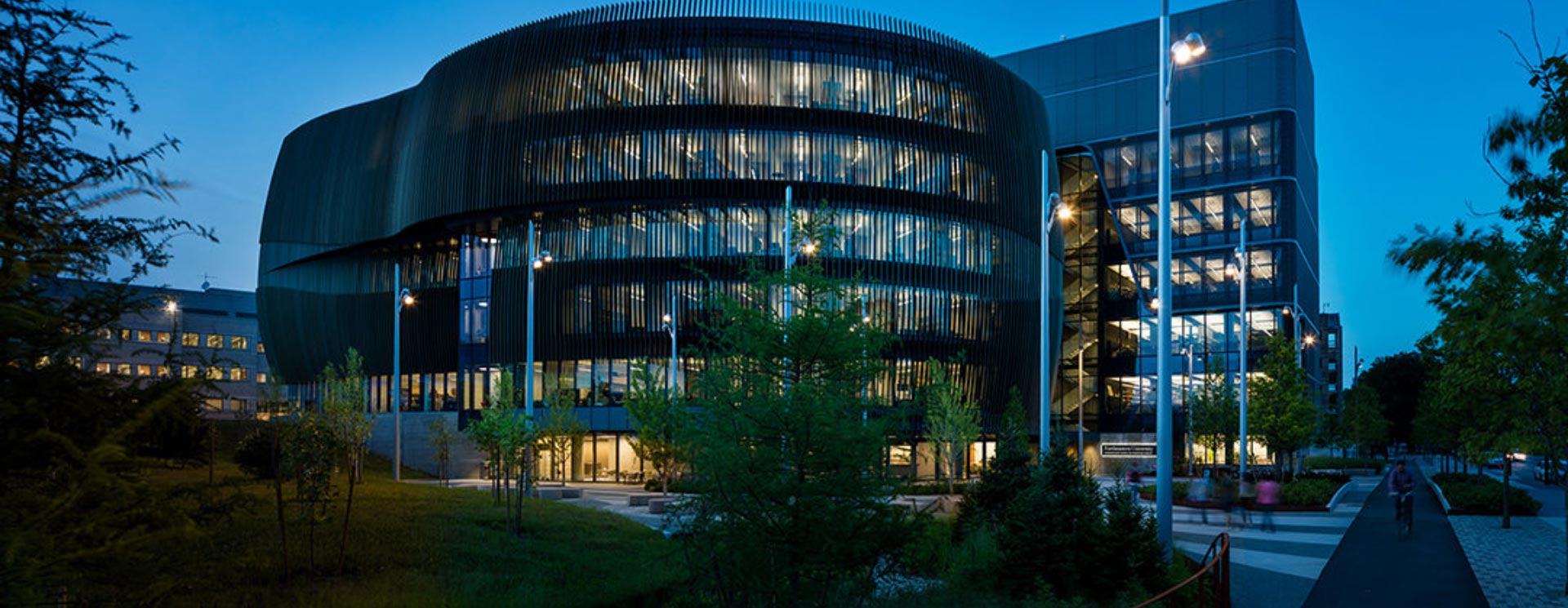
Faculty Labs
News
Richard Porter retires after 50 years of advancing math, mentoring generations at Northeastern
In eighth grade, Richard Porter was far more interested in sculling than studying.
“The teachers didn’t really challenge me to understand the material,” says Porter, a professor of mathematics at Northeastern University. “On my part, I didn’t really spend any time trying to understand it at all.”
He was failing math, and was close to being expelled from his private boarding school in Delaware. But his math teacher stepped in, offering tutoring and helping him engage with the subject.
That helped Porter catch up with his classmates — and realize he saw math differently than most. Soon he was outperforming his classmates.
Porter went on to earn a doctoral degree in mathematics from Yale University.
Now, after five decades at Northeastern, he is retiring, leaving behind a legacy of leadership in mathematics education and mentorship.
Read more from Northeastern Global News.
Photo by Alyssa Stone/Northeastern University
Northeastern physicists honored with Breakthrough Prize in Fundamental Physics for unveiling secrets of the universe
Scientists from Northeastern University are among the thousands of collaborators awarded the 2025 Breakthrough Prize in Fundamental Physics for their research into the fundamental nature of matter at CERN’s Large Hadron Collider.
Officials from the Breakthrough Prizes, known as “the Oscars of Science,” said the winning collaborations at CERN are being recognized for testing the modern theory of particle physics, including precisely measuring the properties of the Higgs boson.
Particle physics is the study of the smallest things in the universe, including quarks, leptons and bosons.
The Breakthrough Prize recognizes the complexity of the work involved in studying the particles at the massive Large Hadron Collider near Geneva, Switzerland, says Northeastern physics professor Louise Skinnari.
“It is a fundamentally collaborative effort. The type of science we do is really trying to understand how nature and the universe work on the smallest scales at the subatomic scale,” says Skinnari.
She was named in the award along with Northeastern physics professors Toyoko Orimoto, Johan Bonilla Castro, Emanuela Barberisand Darien Wood. Also recognized were emeritus faculty George Alverson and numerous current and former post-doctoral researchers and Ph.D students from Northeastern.
Read more from Northeastern Global News.
The Yomiuri Shimbun via AP Images
How do axolotls regenerate limbs and organs? This researcher has started to uncover the secret
Axolotls, with their signature smiles and pink gills, are the celebrities of the salamander world. But they are more than just cute: They might also hold the secret to regenerating human limbs.
Among biologists, axolotls are famous for their remarkable regenerative abilities that allow them to regrow entire limbs and even organs. Now, James Monaghan, biology chair and professor at Northeastern University, has begun to uncover the secret behind the axolotl’s superpower and how it could be used to advance human regenerative medicine.
“It could help with scar-free wound healing but also something even more ambitious, like growing back an entire finger,” Monaghan says. “It’s not out of the realm [of possibility] to think that something larger could grow back like a hand.”
In a recently published paper, Monaghan set out to answer a question that “has plagued the field for 200 years.” How does an axolotl know what body part to grow back? If it loses a hand, how does it know to just grow back a hand as opposed to an entire arm?
Read more from Northeastern Global News.
Photo by Alyssa Stone/Northeastern University
The proposed NASA budget cuts would decimate American science, an expert says
President Donald Trump has proposed the single largest year-over-year cut to NASA’s budget in his 2026 budget proposal, essentially terminating many of the space agency’s most promising missions.
The budget request slashes NASA total funding by nearly 25% — from $24.9 billion to $18.8 billion. Most of the cuts are made by eliminating a significant portion of the agency’s science programs.
The proposed 47% reduction in NASA’s science funding would kill about a third of NASA’s science missions, including one designed to study Apophis, the massive asteroid that will pass extremely close to Earth in 2029. It would also stunt NASA’s ability to study our own planet: Earth science funding would drop by 53%. One-third of NASA’s workforce would be laid off as well.
The White House Office of Management and Budget claimed in its budget request that NASA’s current spending levels on science missions –– more than $7 billion –– are “unsustainable” and that a $3.9 billion budget would be able to support a “leaner, more focused Science program.”
The proposal to severely slash NASA’s budget still needs to pass through Congress. However, if passed, it could end up costing the U.S. more in the long run, says Jacqueline McCleary, an assistant professor of physics at Northeastern University.
Read more from Northeastern Global News.
AP Photo by Scott Schilke



